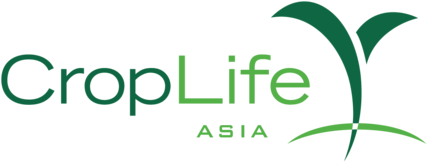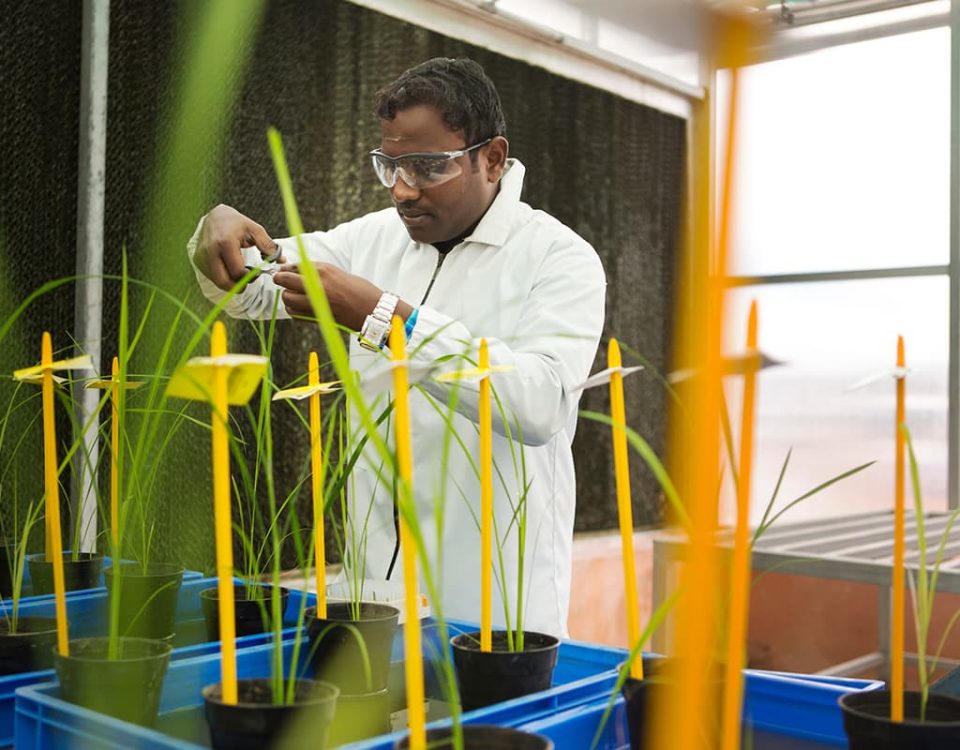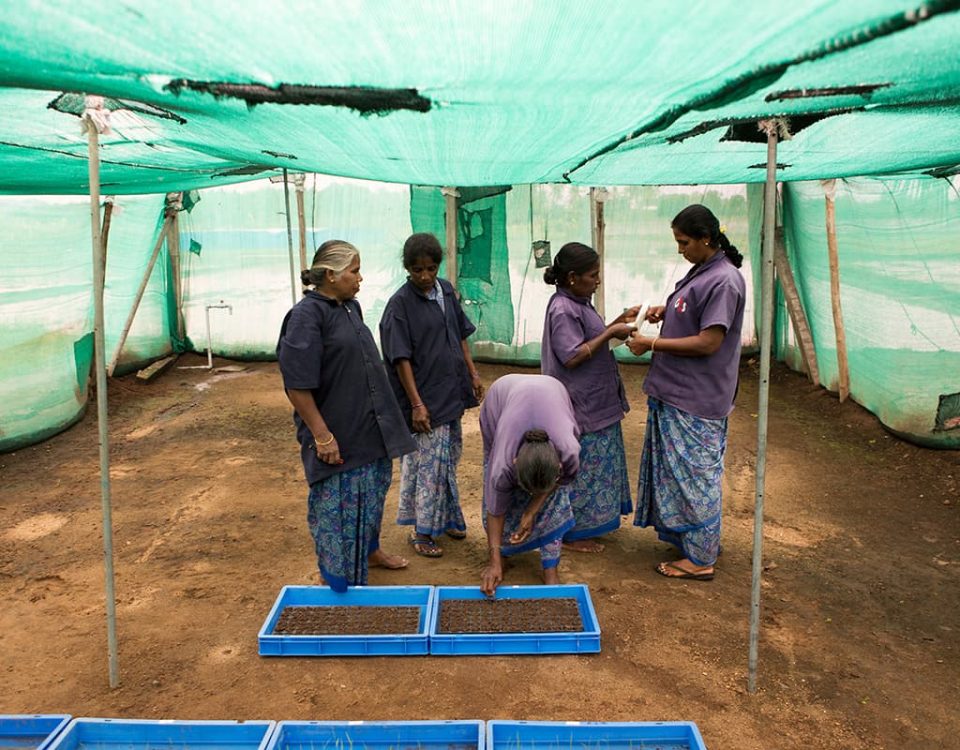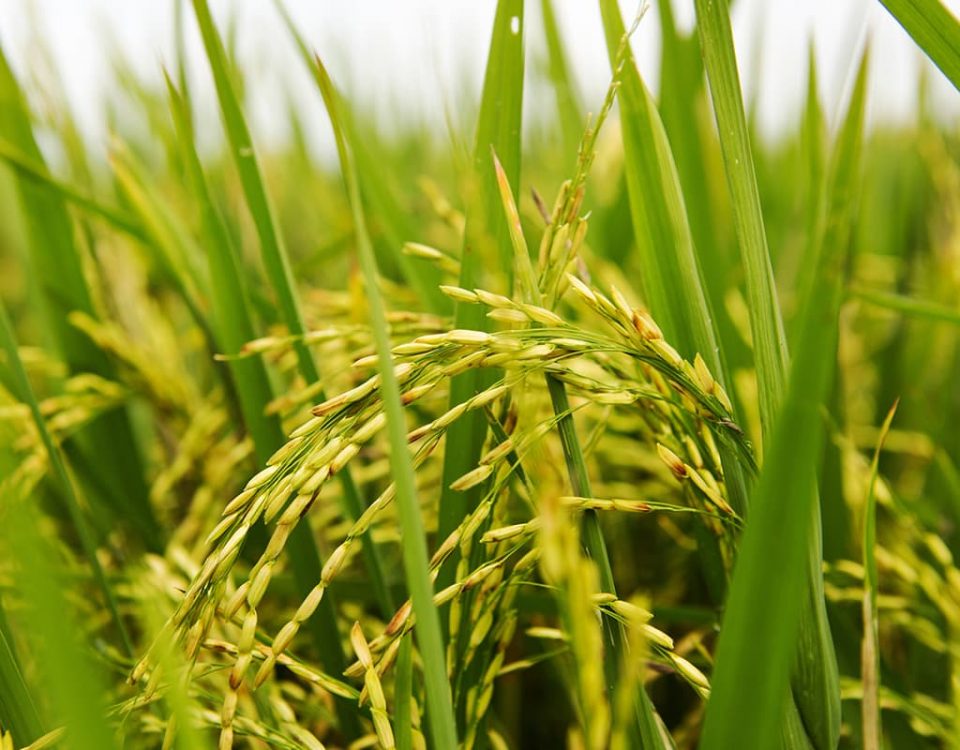Crop Protection
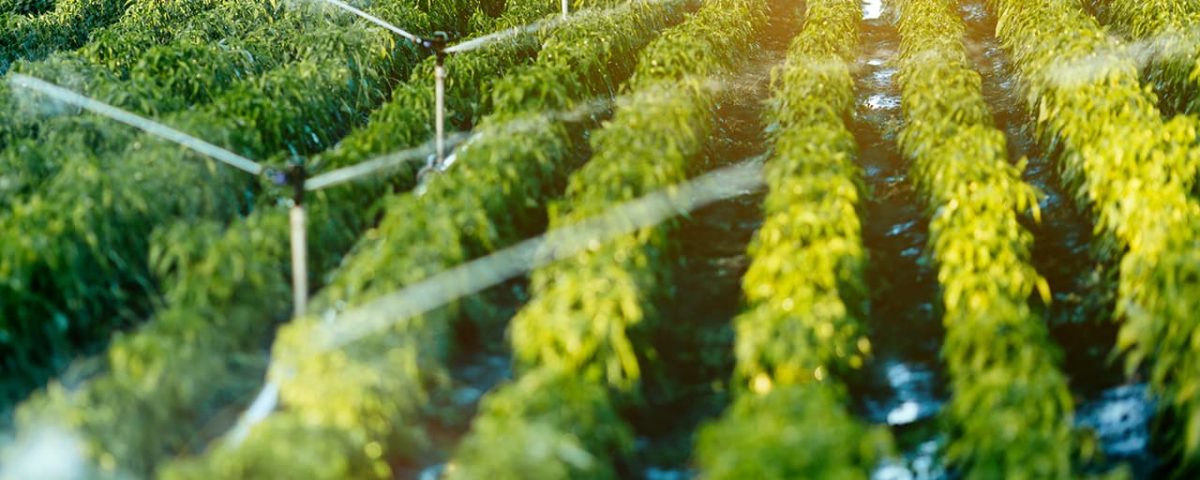
Crop protection products, commonly referred to as pesticides are either naturally occurring or man-made (synthetic) chemicals that help farmers by protecting crops from big losses to pests and diseases and raising productivity per hectare. With a growing global population that is projected to rise to around 10 billion by 2050, pesticides offer a means to meet the challenge of growing more food on less land. Pesticides are necessary and an adequate and reliable food supply cannot be guaranteed without the use of pesticides.
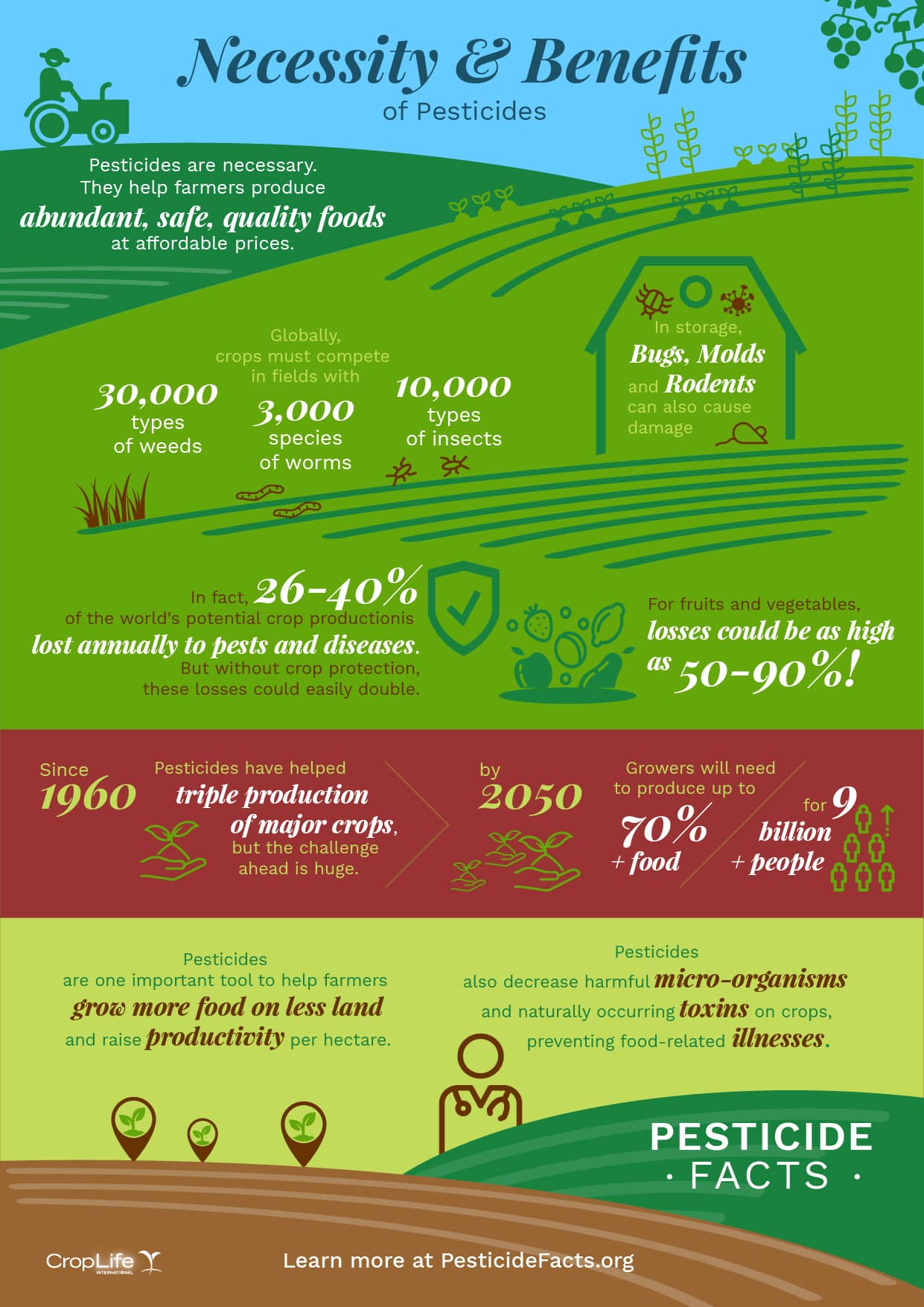
Consumers expect to choose from an abundant supply of fresh, high quality foods that meet our nutritional needs, whilst being affordable and accessible all year-round. The use of crop protection is what makes it all possible. Fruits and vegetables which provide essential nutrients are more abundant and affordable. Grains, milk and proteins, which are vital to childhood development, are more widely available because of lower costs to produce food and animal feed. Crop protection products also help to decrease exposure to food contaminated with harmful micro-organisms and naturally occurring toxins, preventing food-related illnesses.
To ensure that crop protection products conform to the highest ethical and business standards, their safety is carefully and highly regulated. In fact, more tests are required for pesticides than for pharmaceuticals. Manufacturers must follow very stringent product development criteria, whereby an average of 160,000 chemical molecules are analysed and those with potential negative effects are screened out from the very beginning. These tests are based on internationally accepted regulatory guidelines and are sufficiently strong to support regulatory risk assessment. Once approved, these products require re-registrations after every certain number of years, depending on the particular country’s regulation. Scientists are also constantly developing new products and re-evaluating old products based on safety and efficacy. New products are rigorously evaluated to ensure they do not pose unacceptable risk to human health or the environment.
Products are only approved by authorities and placed on the market if thorough testing and evaluation show they do not pose unacceptable risks. Each product has a specific application clearly indicated on the label. While these regulatory aspects are carefully considered prior to commercial sale, the lifecycle approach to pesticide management dictates that manufacturers also extend their safety considerations through the entire lifespan of the product. This commitment is referred to as “product stewardship."
